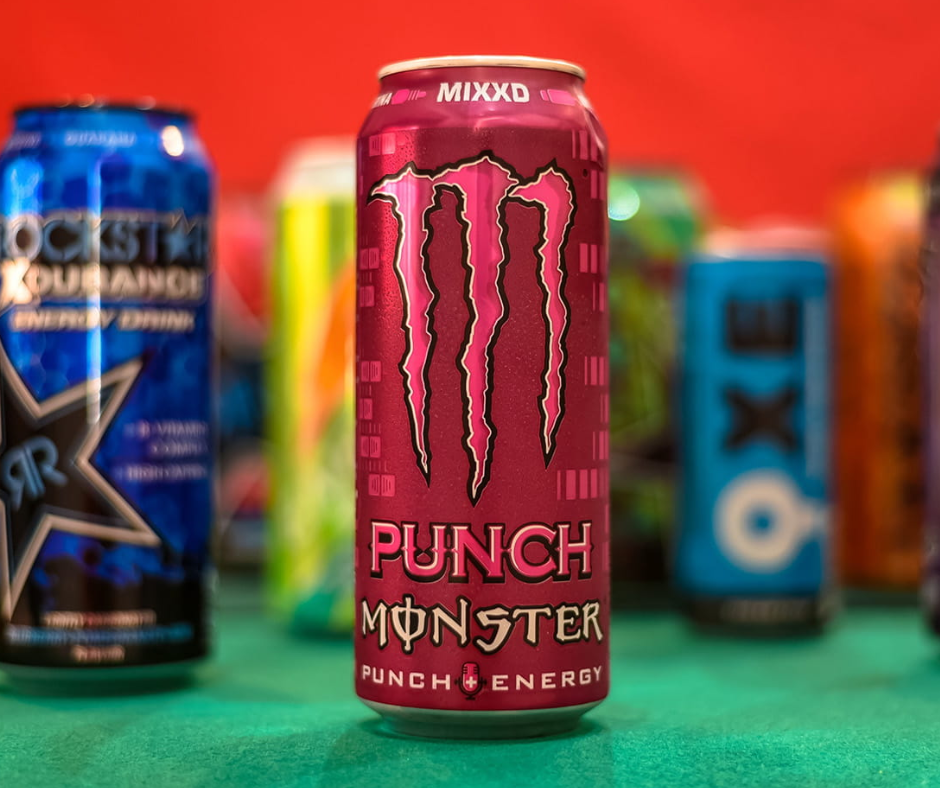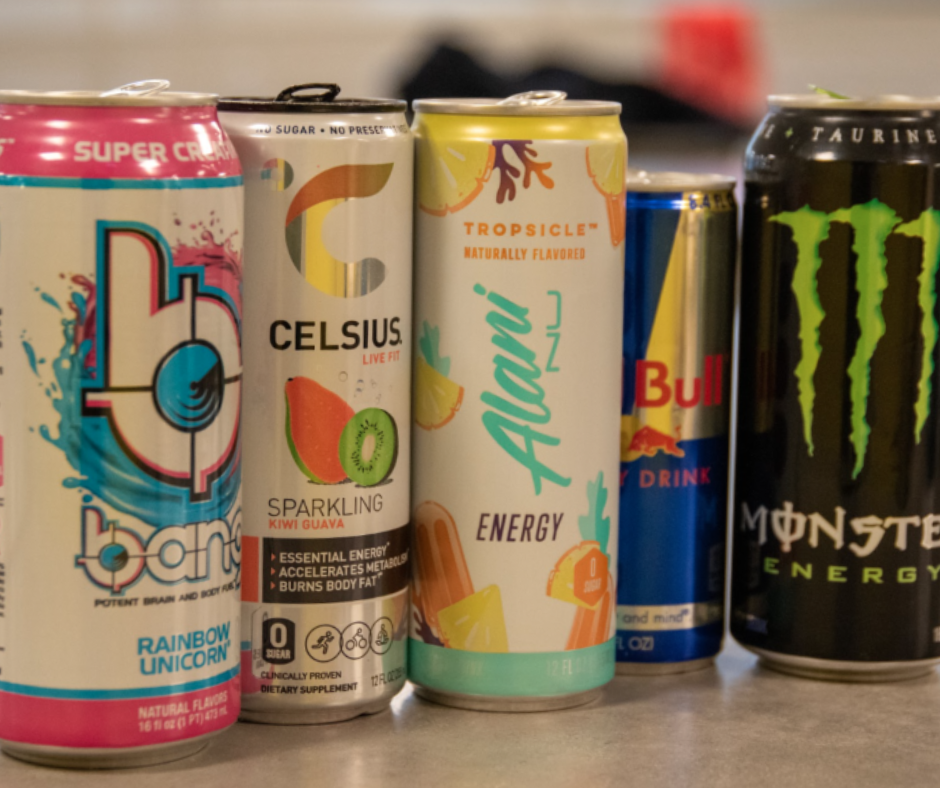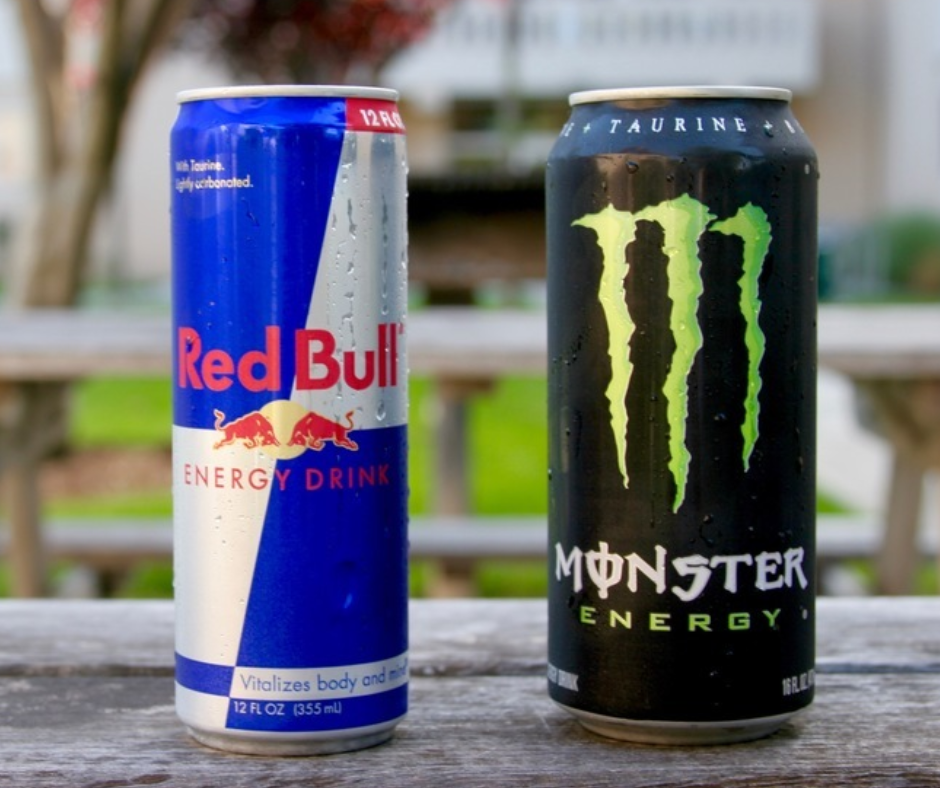Introduction
Energy drinks have become increasingly popular among individuals seeking a quick energy boost and alertness. With their stimulating ingredients and enticing marketing strategies, many people turn to these beverages to power through long days or intense workouts. However, concerns have been raised about the potential impact of energy drinks on weight gain. So, Can Energy Drinks Make You Gain Weight? Let’s take a closer look at this issue.
What Are Energy Drinks And Their Popularity?
Energy drinks are non-alcoholic beverages that contain stimulant ingredients like caffeine, taurine, guarana, and B vitamins. These ingredients increase energy levels and enhance mental and physical performance. Energy drinks are popular among individuals of all ages, especially young adults and teenagers, who often consume them for the perceived benefits during study sessions, work, or sports activities.
However, it’s important to note that excessive consumption of energy drinks can have adverse effects on health, such as increased heart rate, elevated blood pressure, and disrupted sleep patterns. Additionally, the high sugar content in many energy drinks can contribute to weight gain when consumed in excess.
The Potential Impact Of Energy Drinks On Weight Gain
While energy drinks alone may not directly cause weight gain, their high sugar content can contribute. Most energy drinks contain significant amounts of added sugars, which can lead to an increased calorie intake when consumed regularly. Excessive calorie intake and a lack of physical activity can result in weight gain over time.
Furthermore, the stimulating ingredients in energy drinks, particularly caffeine, can indirectly impact weight. Caffeine can suppress appetite temporarily and increase metabolism, leading to a higher energy expenditure. However, these effects are generally short-lived and can be followed by hunger pangs and subsequent overeating, potentially leading to weight gain.
In summary, while energy drinks can provide a temporary energy boost, they should be consumed in moderation. The high sugar content and potential for overconsumption can contribute to weight gain. Maintaining a balanced diet, engaging in regular physical activity, and getting sufficient rest for overall well-being is always important.
Can Energy Drinks Make You Gain Weight?
Energy drinks have gained immense popularity recently, providing a quick burst of energy and enhanced alertness. However, one concern that has been raised is the potential impact of these drinks on weight gain. So, can energy drinks make you gain weight? Let’s take a closer look at the impact.
The Correlation Between High-sugar Drinks And Weight Gain
It is widely known that consuming excessive amounts of sugar can contribute to weight gain. Many energy drinks on the market are packed with high sugar levels, often far exceeding the recommended daily intake. Regular consumption of these high-sugar drinks can increase calorie intake and subsequently result in weight gain.
Sugar, in the form of fructose, is rapidly absorbed by the body, causing a spike in blood sugar levels. When the body has excess sugar, it converts it into fat, which can accumulate over time and lead to weight gain. Additionally, high-sugar drinks do not provide satiety, leading individuals to consume more calories overall.
Impact Of Consuming Energy Drinks On The Risk Of Type 2 Diabetes And Obesity
The consumption of energy drinks has been linked to an increased risk of developing type 2 diabetes and obesity. The high sugar content in these drinks can lead to insulin resistance, a condition where the body’s cells do not respond effectively to insulin. Insulin is responsible for regulating blood sugar levels, and when the body becomes resistant to its effects, it can develop type 2 diabetes.
Furthermore, the excess calories from energy drinks can contribute to weight gain and obesity. Obesity is a major risk factor for several chronic diseases, including heart disease, stroke, and certain types of cancer. Regular consumption of high-sugar energy drinks can contribute to obesity and increase the risk of associated health complications.
While energy drinks may temporarily boost energy, their high sugar content and potential impact on weight gain and health cannot be overlooked. It is important to be mindful of the sugar content in these drinks and consider healthier alternatives to stay energized without the unnecessary calories.
Marketing Tactics And Youth Consumption
Energy drinks have become increasingly popular among young people in recent years. With their flashy advertisements, catchy jingles, and promises of energy and excitement, it is no wonder that these beverages have captured the attention of the youth. However, there is growing concern about ‘Can Energy Drinks Make You Gain Weight?’. Let’s look at the marketing tactics used to target youth and the increased consumption of these beverages among children and adolescents.
Marketing Strategies Targeting Youth
Energy drink companies employ various marketing strategies to appeal to young consumers. They sponsor extreme sports events, music festivals, and gaming competitions, creating a connection between the drink and an active, adventurous lifestyle. Furthermore, they utilize social media platforms extensively, making thousands of young people more susceptible to peer influence. Combined with the clever use of branding and packaging, these tactics make energy drinks seem cool, trendy, and essential for a youthful lifestyle.
Increased Consumption Of Energy Drinks Among Children And Adolescents
The rise in energy drink consumption among children and adolescents is a cause for concern. According to studies, about 73% of children and adolescents aged 10 to 19 consume energy drinks regularly. The high caffeine content, along with added sugars and other stimulants, can have detrimental effects on their health. Excessive consumption of these beverages has been linked to weight gain, increased risk of obesity, elevated blood pressure, sleep disturbances, and even heart problems in some cases.
Additionally, energy drinks often contain many calories, which can contribute to weight gain if consumed in excess. Caffeine and sugar can disrupt appetite regulation, increasing cravings and overeating. Moreover, the stimulating effects of energy drinks may interfere with sleep patterns, which can further disrupt metabolism and contribute to weight gain.
In conclusion, the marketing tactics employed by energy drink companies have successfully targeted youth, leading to increased consumption among children and adolescents. However, the potential impact of energy drinks on weight gain and overall health cannot be ignored. Parents, educators, and health professionals must educate young people about the potential risks of these beverages and promote healthier alternatives.
Caffeine And Other Stimulants
The Influence Of Caffeine On Energy Levels And Performance
Thanks to their high caffeine content, energy drinks have gained popularity for their promise of providing a quick boost of energy. Caffeine is a stimulant that can increase alertness, enhance mood, and improve cognitive performance. In moderation, it can be beneficial for productivity and focus. However, excessive caffeine consumption can lead to negative side effects such as jitteriness, nervousness, and insomnia.
While caffeine can provide a temporary energy boost, it does not directly cause weight gain. Caffeine has been found to have a thermogenic effect, which means it can increase metabolism and promote fat burning. However, it’s important to note that any potential weight loss effects from caffeine will likely be minimal and temporary.
Additional Stimulants In Energy Drinks And Their Effects
Besides caffeine, energy drinks may contain other stimulants such as taurine, guarana, and B vitamins. These ingredients are often included to enhance the energizing effects of the drink. Taurine is an amino acid that promotes cardiovascular health and improves exercise performance. Guarana is a plant extract rich in caffeine and has similar stimulant effects. B vitamins, on the other hand, play a crucial role in energy production and can help combat fatigue.
Although these additional stimulants can contribute to the energizing effects of energy drinks, they do not directly cause weight gain either. However, it’s important to be cautious about consuming too many energy drinks, as some brands’ high sugar and calorie content can lead to weight gain over time. Additionally, excessive consumption of energy drinks can have detrimental effects on overall health, including increased heart rate, high blood pressure, and dehydration.
Consuming energy drinks in moderation is always advisable, and be aware of the ingredients and their potential effects. Regular exercise, a balanced diet, and adequate sleep are still the most effective ways to maintain a healthy weight and overall well-being.
In conclusion, while energy drinks can temporarily boost energy and contain stimulants like caffeine, they do not directly cause weight gain. However, excessive consumption of energy drinks, particularly those with high sugar content, can contribute to weight gain over time. It’s important to be mindful of caffeine intake and make healthier choices for overall well-being.
Special Concerns For Adolescents
Amplified Negative Health Effects On Teenagers
Teenagers need to be particularly cautious when it comes to energy drinks and their potential impact on weight gain. Adolescents are at a stage of rapid growth and development, and their bodies may react differently to the ingredients in energy drinks compared to adults. These drinks often contain high levels of caffeine and other stimulants, which can lead to a range of negative health effects in teenagers.
One concern is that the excessive caffeine in energy drinks can disrupt teenagers’ sleep patterns, leading to fatigue and decreased cognitive functioning. Lack of quality sleep can also contribute to weight gain, disrupting the body’s natural metabolic processes. Additionally, energy drinks can increase the risk of heart palpitations, high blood pressure, and even heart attacks in young individuals.
Heightened Risk Due To Caffeine And Added Sugars
Caffeine, a key ingredient in energy drinks, is a stimulant that can affect the body. While it may provide a short-term boost in energy and alertness, excessive caffeine consumption can lead to jitteriness, nervousness, and even addiction. The high sugar content in energy drinks is another cause for concern. These added sugars can contribute to weight gain and increase the risk of developing conditions such as type 2 diabetes and obesity.
Furthermore, energy drinks are often consumed quickly and in large quantities, which can result in an excessive calorie intake. Many people are unaware of the hidden calories in these beverages and the potential for dehydration due to their diuretic effects.
It is important for teenagers and their parents to be aware of these potential health risks and to approach energy drinks with caution. Encouraging healthier alternatives such as water, herbal tea, or natural fruit juices can provide a more sustainable energy source without negative consequences.
In conclusion, energy drinks can have a detrimental impact on weight gain, particularly in teenagers. Combining caffeine, added sugars, and excessive calorie intake can disrupt sleep patterns, contribute to weight gain, and increase the risk of various health issues. It is crucial to prioritize the health and well-being of adolescents by promoting healthier alternatives and educating them about the potential risks associated with energy drinks.
FAQ: Can Energy Drinks Make You Gain Weight? A Closer Look at the Impact
Q: Can drinking energy drinks cause weight gain?
A: The impact of energy drinks on weight gain is a topic of debate among researchers. While some studies have suggested a potential link between energy drink consumption and weight gain, others have found no significant effect.
Q: What factors could contribute to weight gain from energy drinks?
A: If energy drinks are consumed in excess and on a regular basis, the high-calorie content and added sugars found in some energy drinks could contribute to weight gain. Additionally, the caffeine and other stimulants in these beverages may affect appetite and lead to increased calorie intake.
Q: Do all energy drinks contain high amounts of sugar and calories?
A: Not all energy drinks are the same. Some energy drinks contain added sugars and can be high in calories, while others may be sugar-free or have reduced sugar content. It’s important to read the nutrition labels and choose beverages that align with your dietary goals.
Q: Can energy drinks stimulate metabolism and aid in weight loss?
A: While energy drinks may temporarily increase metabolism due to their caffeine content, the impact on weight loss is minimal. The calories consumed in energy drinks often outweigh any potential boost in metabolism.
Q: Are there any health risks associated with energy drink consumption?
A: Yes, there are potential health risks associated with energy drink consumption. These include increased heart rate, elevated blood pressure, disturbed sleep patterns, and potential adverse effects on mental health. It’s important to consume energy drinks in moderation and consider healthier alternatives.
Q: Can energy drinks affect exercise performance and muscle gain?
A: Some studies have suggested that energy drinks may have positive effects on exercise performance, including increased reaction times and improved mental focus. However, the impact on muscle gain is limited, and more research is needed to draw definitive conclusions.
Q: Are energy drinks suitable for young adults?
A: The suitability of energy drinks for young adults is a matter of concern. The high caffeine content in these beverages may have a stronger effect on younger individuals, potentially leading to adverse health effects. It is advisable for young adults to limit their consumption of energy drinks and prioritize healthier alternatives.
Q: What can I do to maintain a healthy weight while consuming energy drinks?
A: To maintain a healthy weight while consuming energy drinks, it is important to do so in moderation. Read the nutrition labels and choose beverages with reduced sugar and calorie content. Additionally, focus on establishing a balanced diet and engaging in regular physical activity.
Conclusion
Now you should know the answer to ‘Can Energy Drinks Make You Gain Weight?’. The impact of energy drinks on weight gain is a complex issue that varies from person to person. While the high sugar and calorie content in some energy drinks can contribute to weight gain, it is the overall lifestyle choices and consumption patterns that determine the outcome.
Overall Impact Of Energy Drinks On Weight Gain
Energy drinks can potentially contribute to weight gain due to their high sugar and calorie content. The excess calories from these drinks can lead to weight gain if not balanced with a healthy diet and regular exercise. Additionally, the caffeine and other stimulants in energy drinks can disrupt sleep patterns and increase stress hormones, which may indirectly impact weight gain or hinder weight loss efforts.
It’s worth noting that energy drinks are marketed as performance-enhancing beverages and are not intended to replace a healthy and balanced diet. Regular and excessive consumption of energy drinks can lead to an increased risk of obesity and other health issues.
Recommendations For Safe Consumption
To consume energy drinks safely and minimize the potential for weight gain, consider the following recommendations:
- Moderation is key: Limit your consumption of energy drinks. It is essential to be mindful of your overall daily calorie intake and avoid excessive consumption of high-calorie beverages.
- Choose low-calorie options: Opt for energy drinks that are low in sugar or sugar-free to reduce the calorie content.
- Balance with a healthy diet: Ensure you consume a balanced and nutritious diet with plenty of fruits, vegetables, lean proteins, and whole grains. This will help offset the potential negative impact of energy drinks on weight gain.
- Stay hydrated with water: Don’t rely on energy drinks as a primary source of hydration. Drink plenty of water throughout the day to stay adequately hydrated.
- Consider alternative sources of energy: Explore natural alternatives for boosting energy levels, such as getting enough sleep, regular exercise, and consuming foods rich in vitamins and minerals.
In conclusion, while energy drinks can contribute to weight gain if consumed excessively or as part of an unhealthy lifestyle, responsible and moderate consumption may not necessarily lead to weight gain. It’s important to make informed choices, prioritize a balanced diet, and engage in regular physical activity to maintain a healthy weight and overall well-being.

Deb Carlson at Crosslake Coffee: Join Deb at Crosslake Coffee for a delightful blend of community, caffeine, and creativity. Discover the cozy ambiance and warm hospitality that make this local coffee shop a beloved gathering spot. From expertly crafted espresso drinks to mouthwatering pastries, Deb invites you to savor every sip and bite. Stay connected with the latest updates on specials, events, and live music performances by following Deb Carlson at Crosslake Coffee on social media. Embrace the vibrant online community and share your love for great coffee and good company with fellow enthusiasts. Don’t miss out on a moment of the Crosslake Coffee experience – connect with Deb on social media today.



